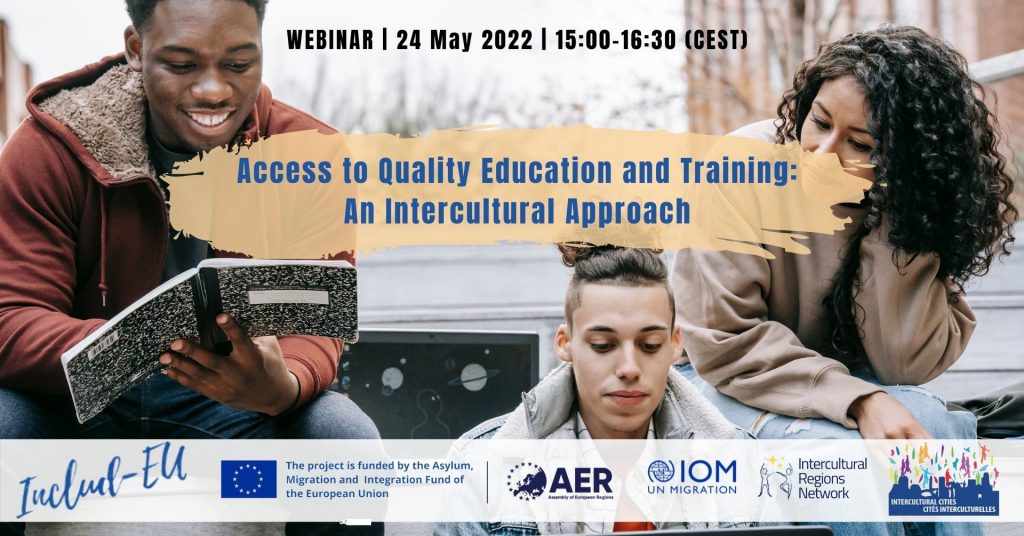News
Webinar: Access to quality education and training: an intercultural approach
How to unlock the potential of education and training as key enablers for inclusion?

Formal education and extracurricular activities have a powerful influence on how individuals perceive diversity. From early childhood education to lifelong learning, education and training are therefore powerful tools for building more inclusive societies.
Actions to support the inclusion of third-country nationals and to harness the diversity advantage include work on the school and extracurricular programmes, when this falls under the competences of the region or city, as well as the creation of opportunities for children and adults (parents, educators) of different cultures to build trust and mutual respect and create thereby favourable learning and working conditions for all pupils, irrespective of their nationalities, origins, languages, sexual orientation or gender identity, religions/beliefs.
Learner-centered approaches that take into consideration the needs, talents, skills, desires and mindset of individual learners (including their backgrounds), as well as the need to ensure learning is accessible at all stages of their lives, are crucial to achieving personal development and participate fully in society.
As for language, the provision of courses and other facilities for people with migrant backgrounds to learn the receiving country’s language(s) is important to ensure social and economic integration. It does however need to be supplemented with activities that highlight the value of other languages and enable people with migrant origins not only to preserve and transmit their languages to their children and other members of the community but also to take pride in them as a heritage enriching the local community. An intercultural city/region promotes multilingualism as a resource for education, business, tourism, cultural life, etc.
During our 5th Includ-EU webinar, we will discuss and look into the policy context and different ongoing initiatives on access to quality education and training for migrants and Third Country Nationals (TNC), with a special focus on the lifelong learning dimension and as usual, from the lenses of interculturality.
Speakers of the webinar include:
- Emanuela Di Paola, Education Focal Point, Integration Unit, IOM, Coordination Office for the Mediterranean (Italy);
- Bruno Mesquita Valle, Chief of Unit, Capacity Development and Field Support, UNESCO;
- Irene Psifidou, Senior Expert, CEDEFOP, VET and Inclusion: a European Picture;
- Maria Podlasek-Ziegler, Policy Specialist at European Commission: Erasmus+ and European Solidarity Corps Inclusion and Diversity Strategy;
- Eleonora Milazzo, PhD, researcher and migration policy consultant, Kings College London: Presentation of thematic briefing on Access to Education;
- Miquel Carrión Molina, Deputy Director at Youth Employment and Professional Qualification, Catalonia (ES), Individuals and learner centre approach;
- Ourania Xylouri, Director, Athens Lifelong Learning Institute, Greece;
- Maja Radinovič Hajdič, Director, Adult Education Center Jesenice.
Moderator: Anna Comacchio, Project and Policy Officer at Assembly of European Regions.
Contacts:
Anna Comacchio, Project and Policy Officer, a.comacchio@aer.eu
Johanna Pacevicius, Policy and Knowledge Transfer Coordinator, j.pacevicius@aer.eu
Do you want to share your project with our community and stakeholders?